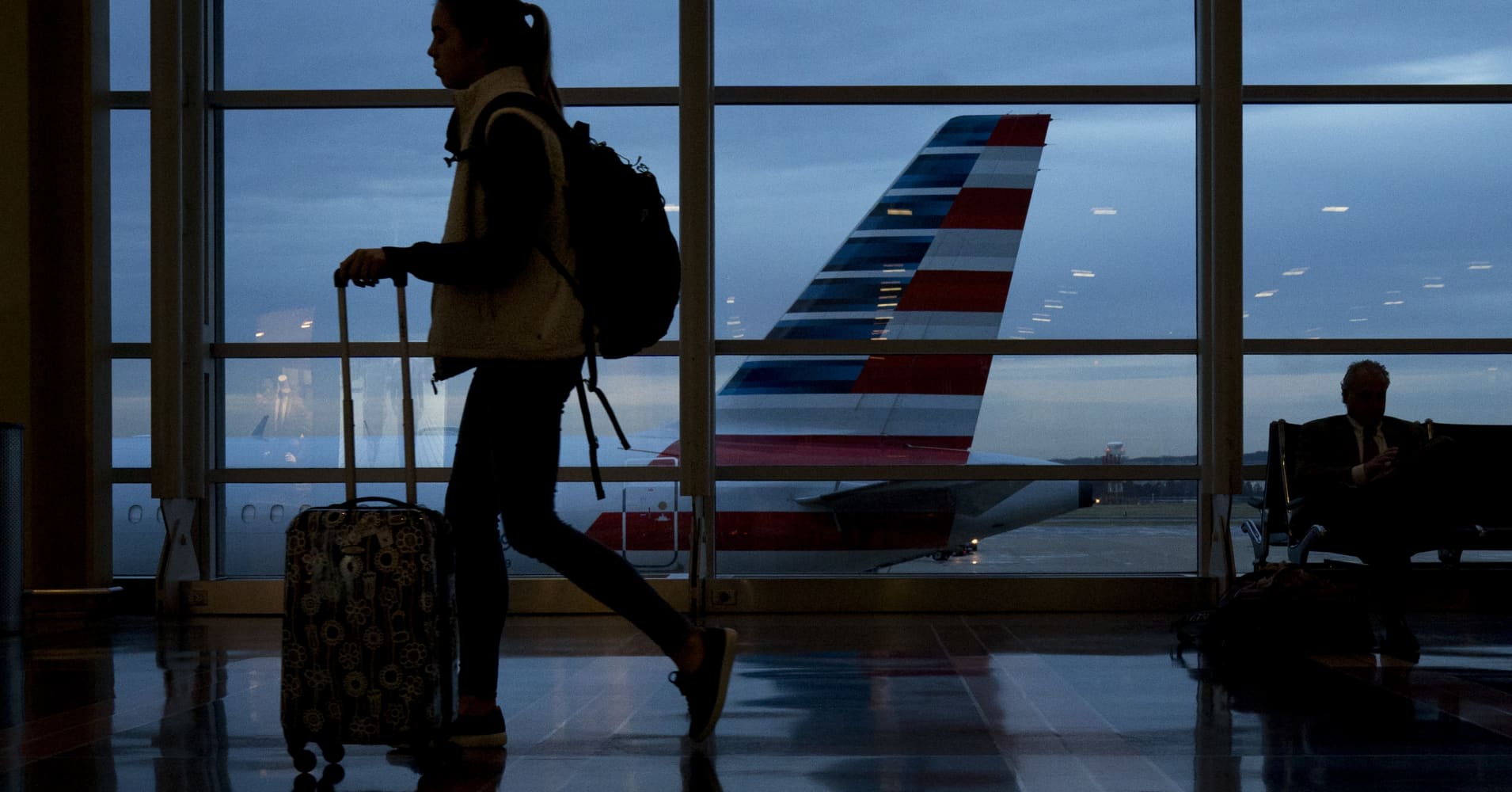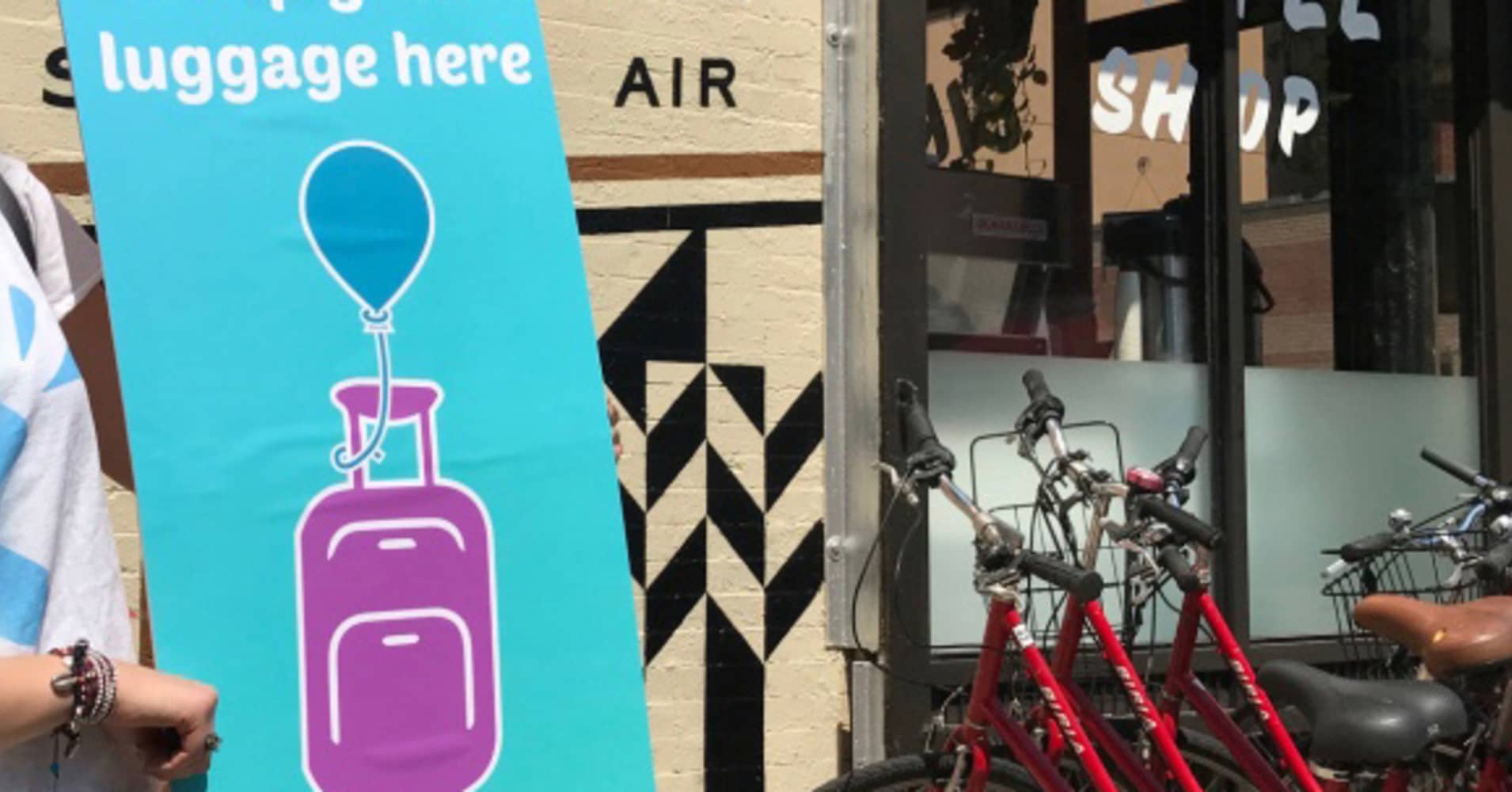A vexing problem for travelers is finding a place to stash their suitcases when they arrive in a city too early to check into a hotel or Airbnb, or when they've checked out of their rooms and have adventures planned before heading to the airport.
Toting baggage to restaurants, museums or a meeting with a potential client is one option. But a growing number of start-ups promise apps that match travelers seeking short-term bag storage with coffee shops, restaurants, gift shops and other businesses that have secure storage space to spare.
These luggage storage networks, such as Vertoe, LuggageHero, Stasher, Nannybag, Knock Knock City and others, allow users to open an app, locate a vetted nearby drop-off spot, reserve a space and pay for the service online. Once dropped off, security ties are usually attached to bags to prevent tampering. Insurance is included in the fee and, after pick-up, users are invited to rate the experience online.
Storage fees vary and are charged by either the hour or the day. Both Knock Knock City and LuggageHero charge $1 per hour or $10 per day with a one-time handling fee of $2 per bag. Nannybag charges $6 per bag for the first day and $4 per bag for each additional day. Stasher's fees are $6 per day per item and Vertoe's fees start at $5.95 per day, per item (overnight storage counts as two days) and varies by location.
The services are still young and in the active learning and growth mode.
LuggageHero, which Jannik Lawaetz founded in 2016, currently has more than 300 storage locations in six cities (New York, London, Copenhagen, Lisbon, Madrid and Barcelona) and plans to expand to 39 cities by January 2020.
"The biggest challenges so far have been language," said Lawaetz. The company started by working only with locations in English-speaking countries, but now is working where Spanish and Portuguese are spoken.
Knock Knock City, also founded in 2016, has dealt with some challenges as well.
"We started in New York City and Brooklyn with people offering bag storage in their apartments on Craigslist, like Airbnb for luggage," said Selin Sonmez, co-founder of Knock Knock City, "But we found the business hours posted for some people's homes weren't reliable or always accurate and others required users to walk up flights of stairs with their suitcases."
Knock Knock City now also operates in San Francisco, Boston, Washington, D.C., Seattle, Philadelphia, Chicago and Miami and only works with partners on a ground floor that have strict business hours. Sonmez said any location with an average star rating below 3.5 (out of 5) is removed.
Like the other luggage-storage app services, the list of Knock Knock City partner sites is eclectic. Customers can store their bags at bike shops, clothing stores, restaurants, a massage therapist's office, an eyebrow bar, at hotels and in hostels.
In addition to helping businesses put unused or underutilized space to income-producing use, "we're helping local economies by getting travelers to explore neighborhoods and getting foot traffic in the doors," said Sonmez.
That's the pitch that convinced Atlas Workbase, a co-working space by Seattle's Space Needle, to sign up as a Knock Knock City site.
"There are a lot of Airbnb rentals in this area and a lot of tourists, so it solves a real need," said Kim Burmester, Atlas Workbase vice president of sales and marketing. "But our real goal is to get traffic in here as our key target audience is the traveling professional."
Vertoe, with luggage storage sites in 19 U.S. cities, has partnered with gift shops at transit nodes, hotels, cafes and dry cleaners. It will soon add some co-working spaces to its network as well.
"When we look for look for spaces, it is very important to us that our partners actually make money," said Vertoe co-founder and chief marketing officer Neha Kesarwani. "We add the locations thoughtfully with that goal in mind. If it's a marketplace, it needs to be a healthy one."
Nannybag, which operates in 24 countries and 250 cities, reports some hotel partners that have signed up as luggage "nannies" are finding it more profitable to set aside some guests rooms for luggage storage instead of renting the rooms to guests.
Stasher, with more than 1,000 StashPoints in more than 160 cities across four continents, has partnered with everything from a flower shop to an art gallery for storage. But it finds that a third of its luggage storage sites are now hotels.
"They generally offer better customer service as they normally already deal with this kind of request, and have very convenient opening hours as well," said Stasher marketing manager Elsa Corcione via email.
Stasher is also available in the Hotels.com concierge app and, like other luggage storage apps, is working with online travel companies to offer luggage storage as an add-on service.
As convenient as storing a suitcase at a coffee shop for a few hours may be, travelers who don't want to deal with any baggage hassles have other options. Travelers can send luggage (and golf bags, ski and snowboard gear or bicycles) ahead with door-to-door shipping services such as Luggage Free or with services such as Lugless (part of the Luggage Forward family) that offer both drop-off and door-to-door luggage shipping services. Pricing depends on destination, weight and how soon you want your bag to arrive.
Or, business travelers may want to consider another option. For an introductory fee of $9.95 per month for storage, and $99 per standard round-trip U.S. shipment, travelers can skip worrying about making arrangements for toting around a suitcase altogether. Dufl sends customers a suitcase to be filled with clothes or accessories and then picks up the suitcase and stores the items in a "virtual closet."
Customers can request that the suitcase, filled with any of the stored items, be waiting for them at a hotel and then, after their trip, return the suitcase and the clothes back to Dufl for dry cleaning and storage until the next trip comes around.
Let's block ads! (Why?)
from Top News & Analysis https://ift.tt/2CPx2Nz
via
IFTTT

















